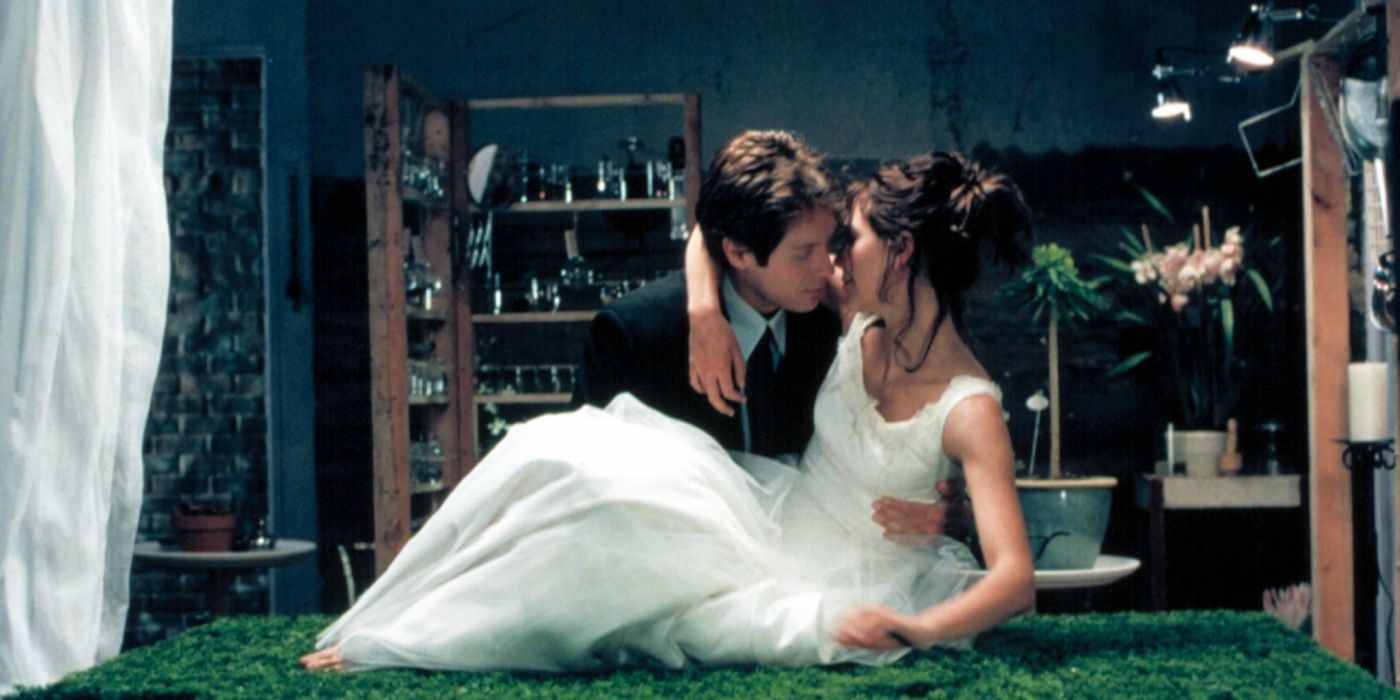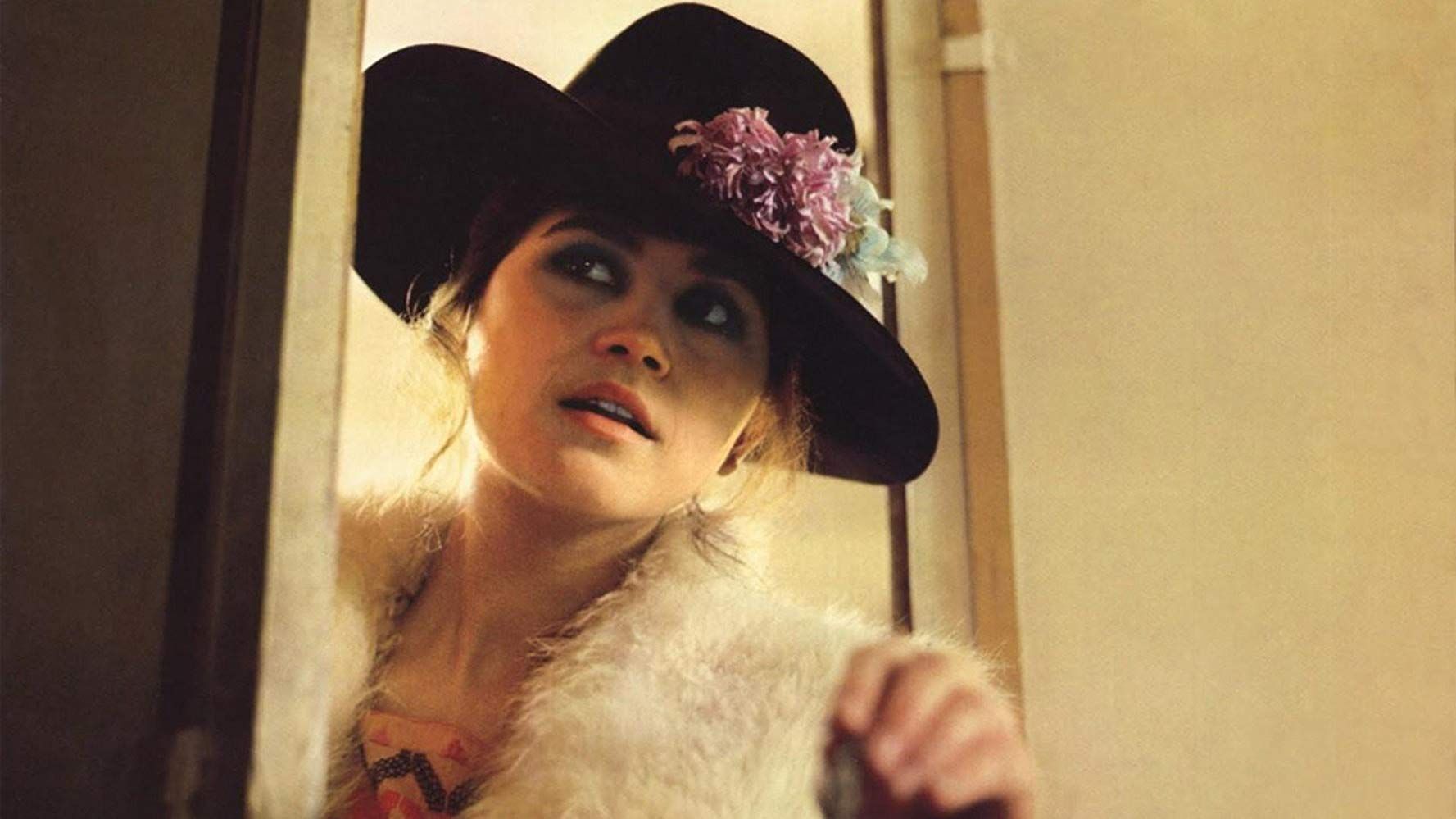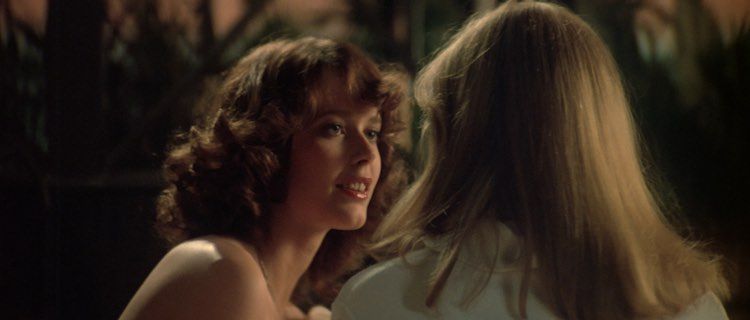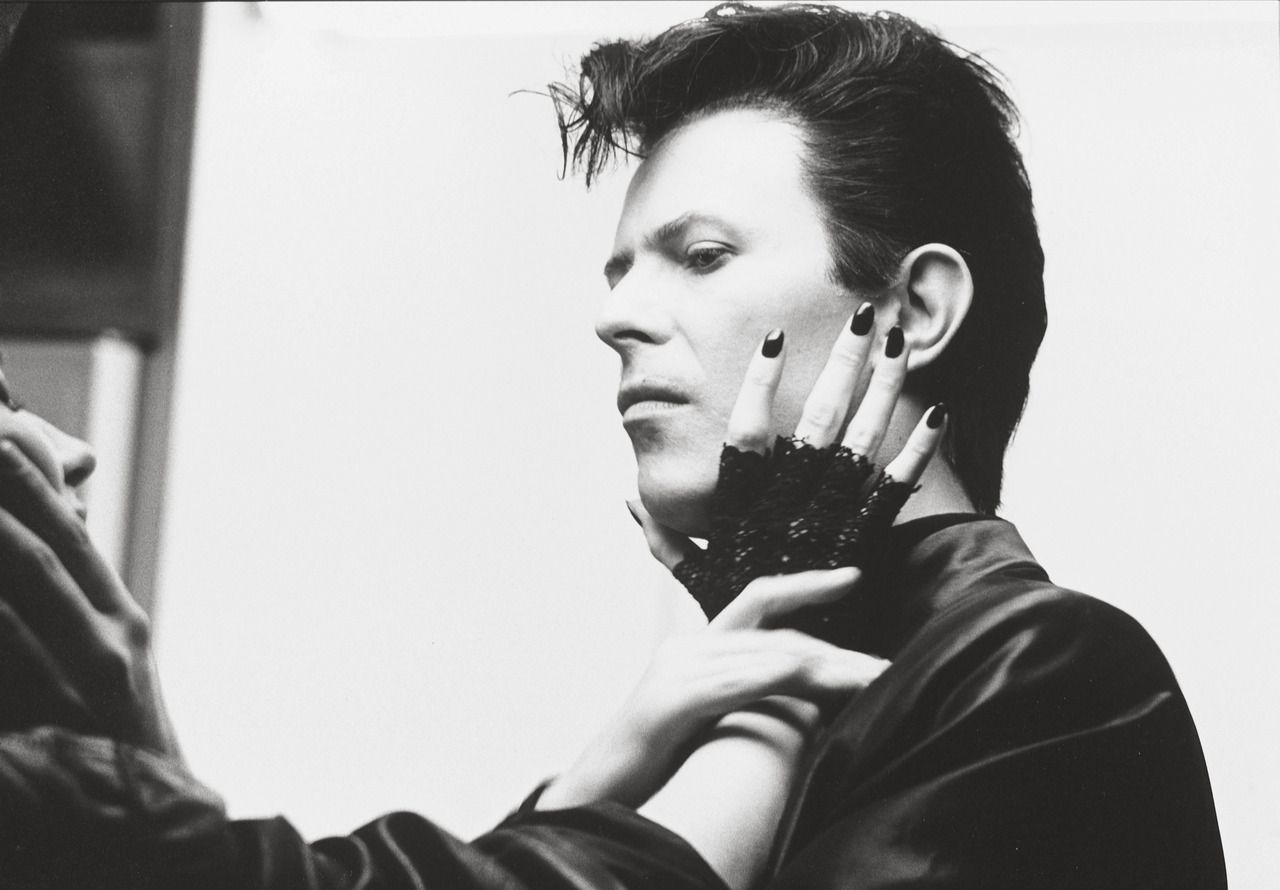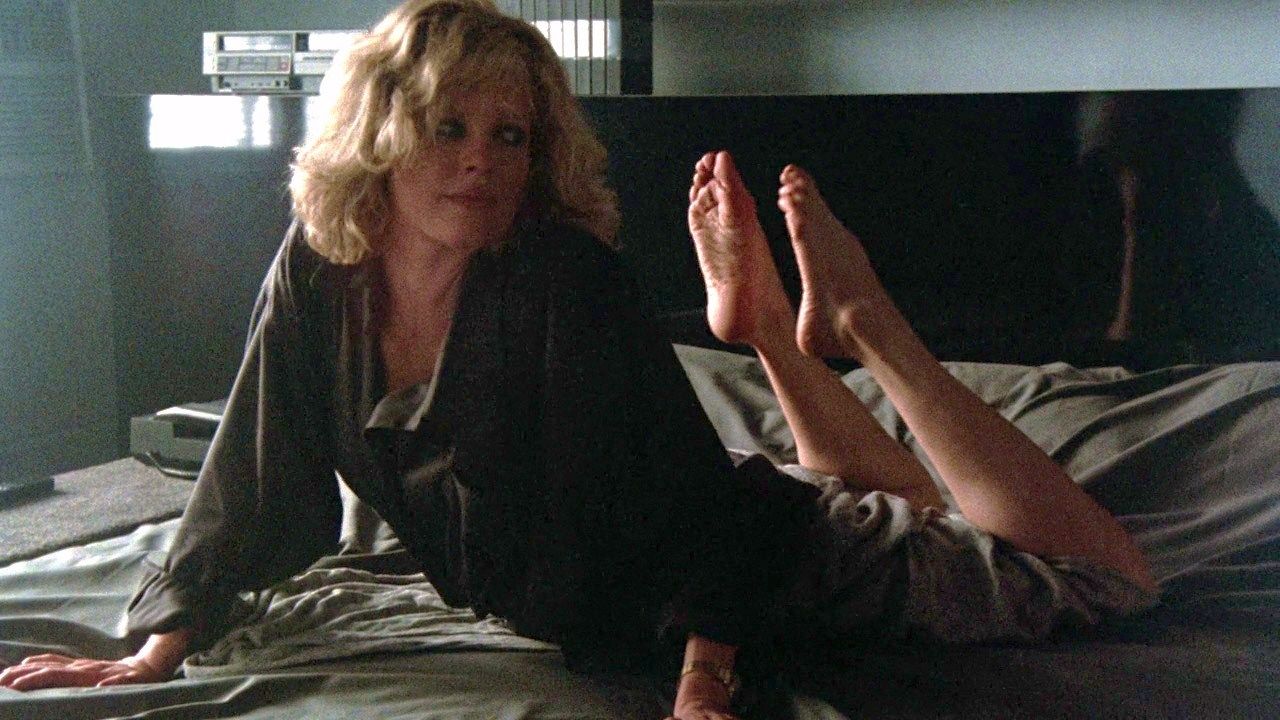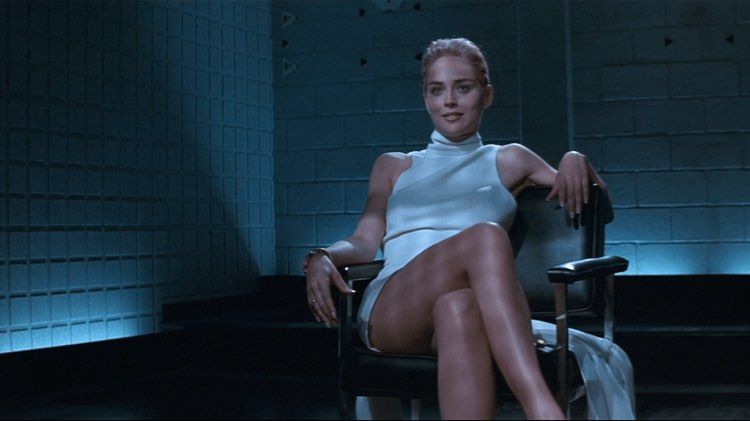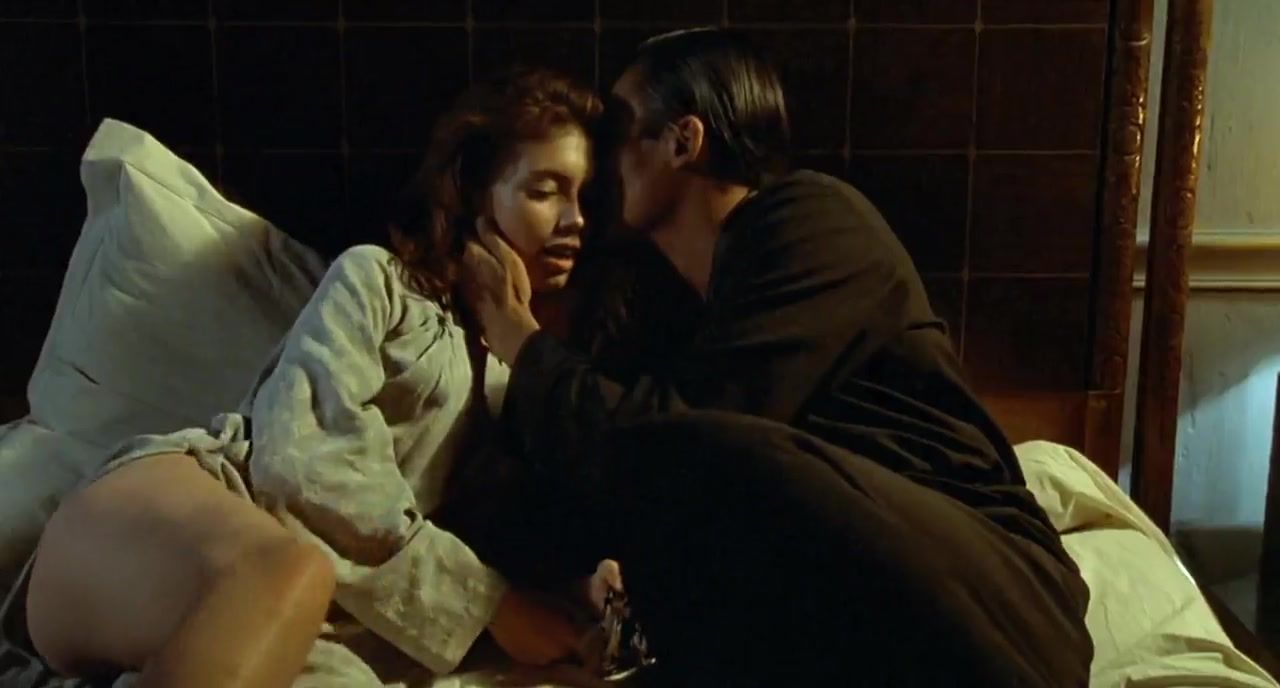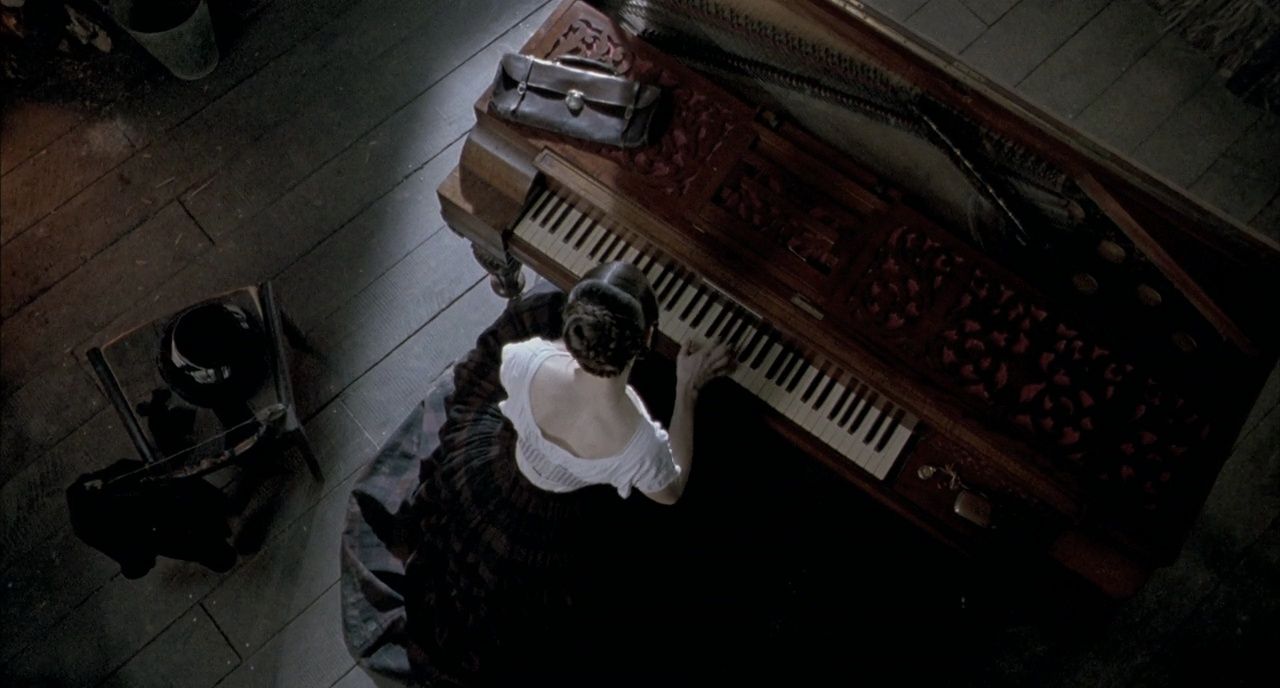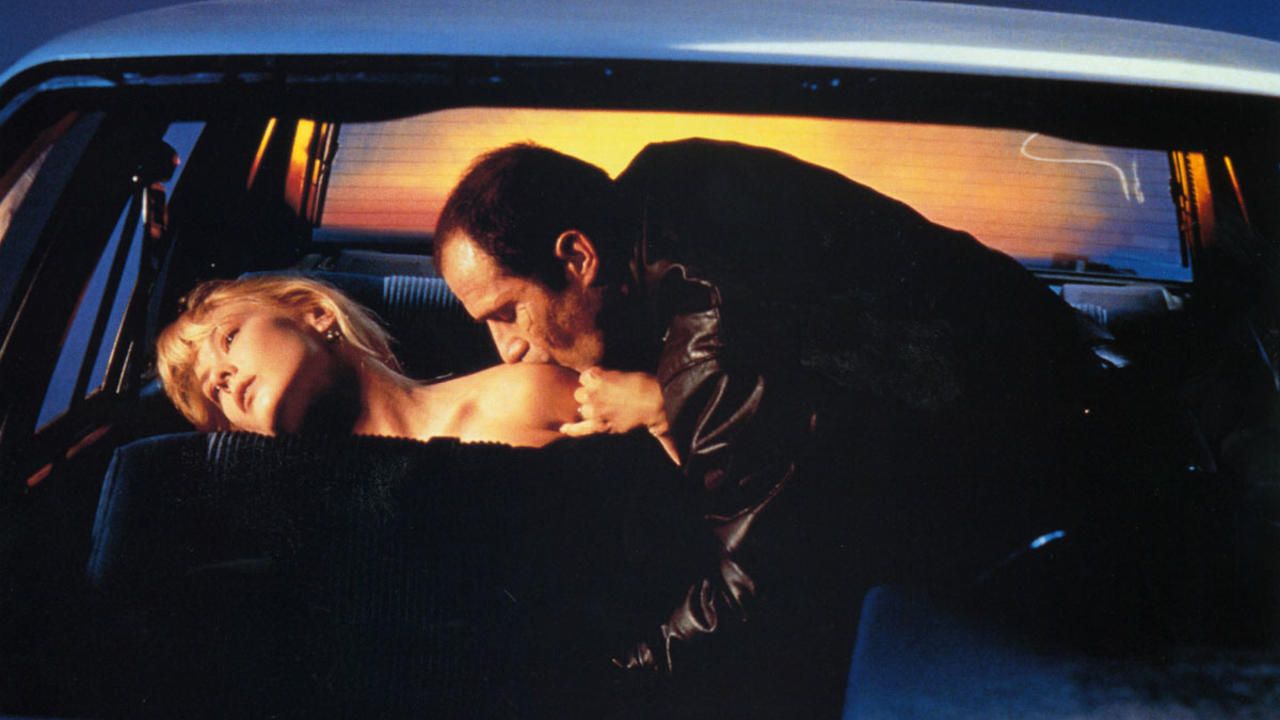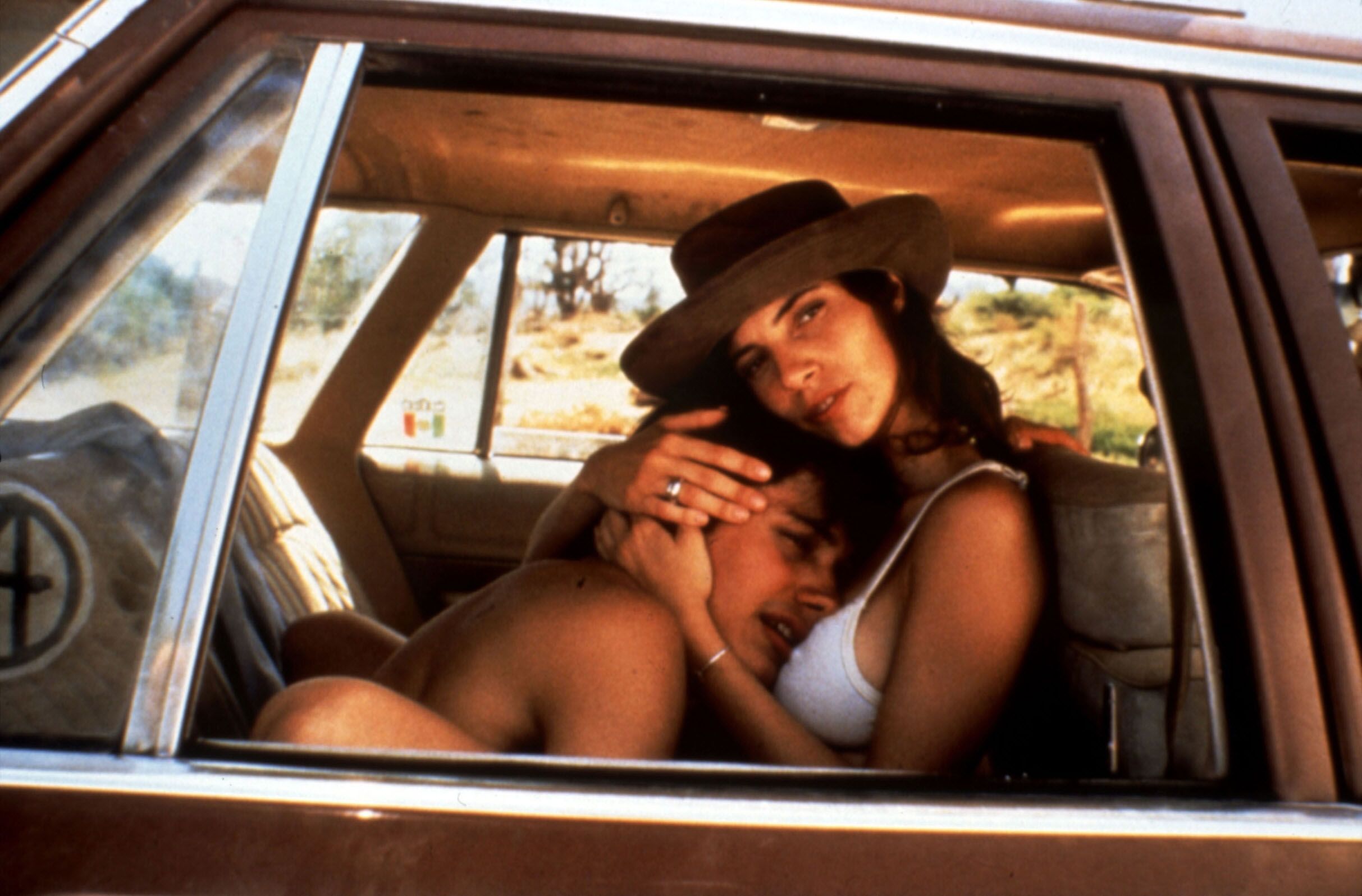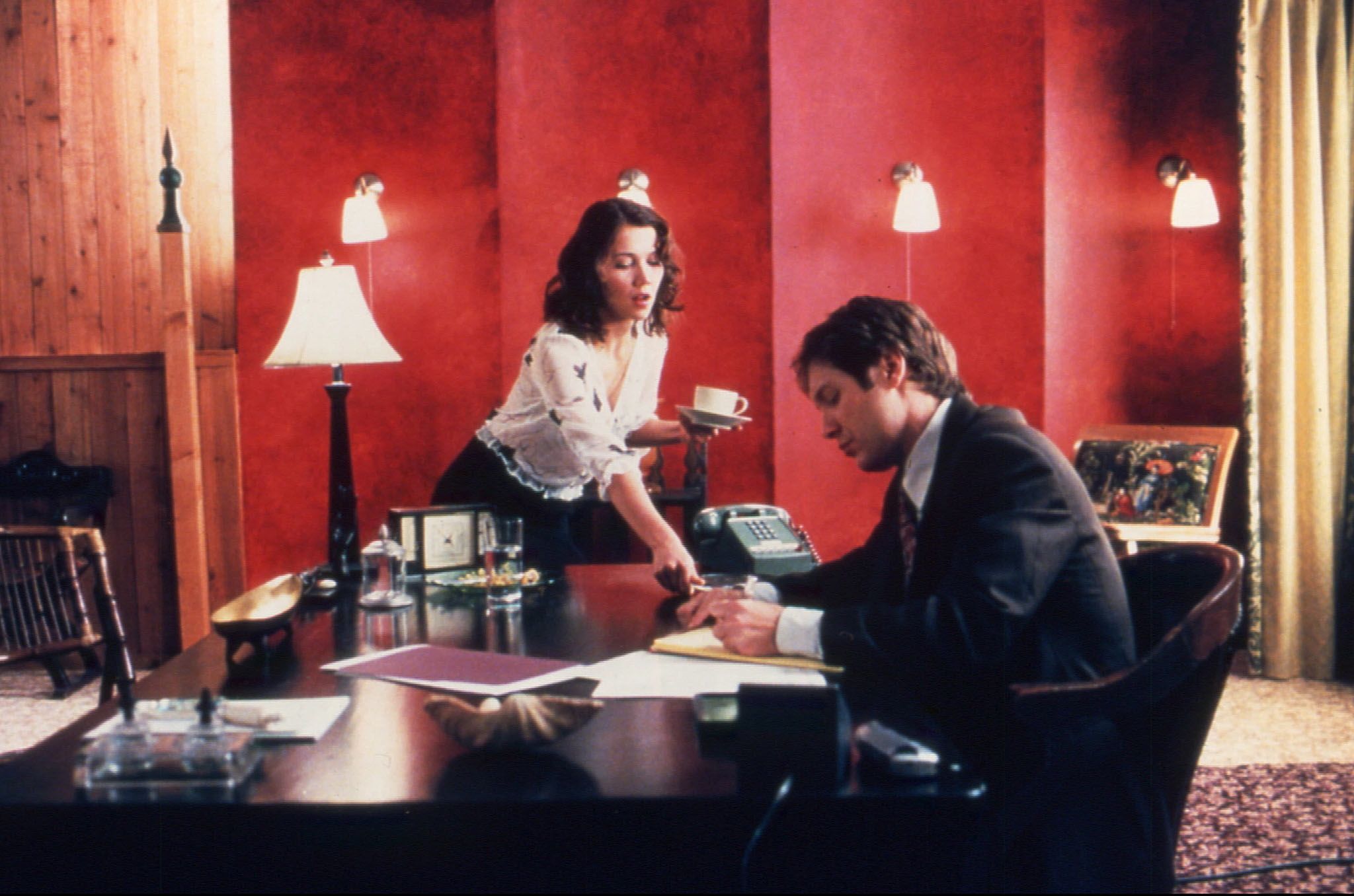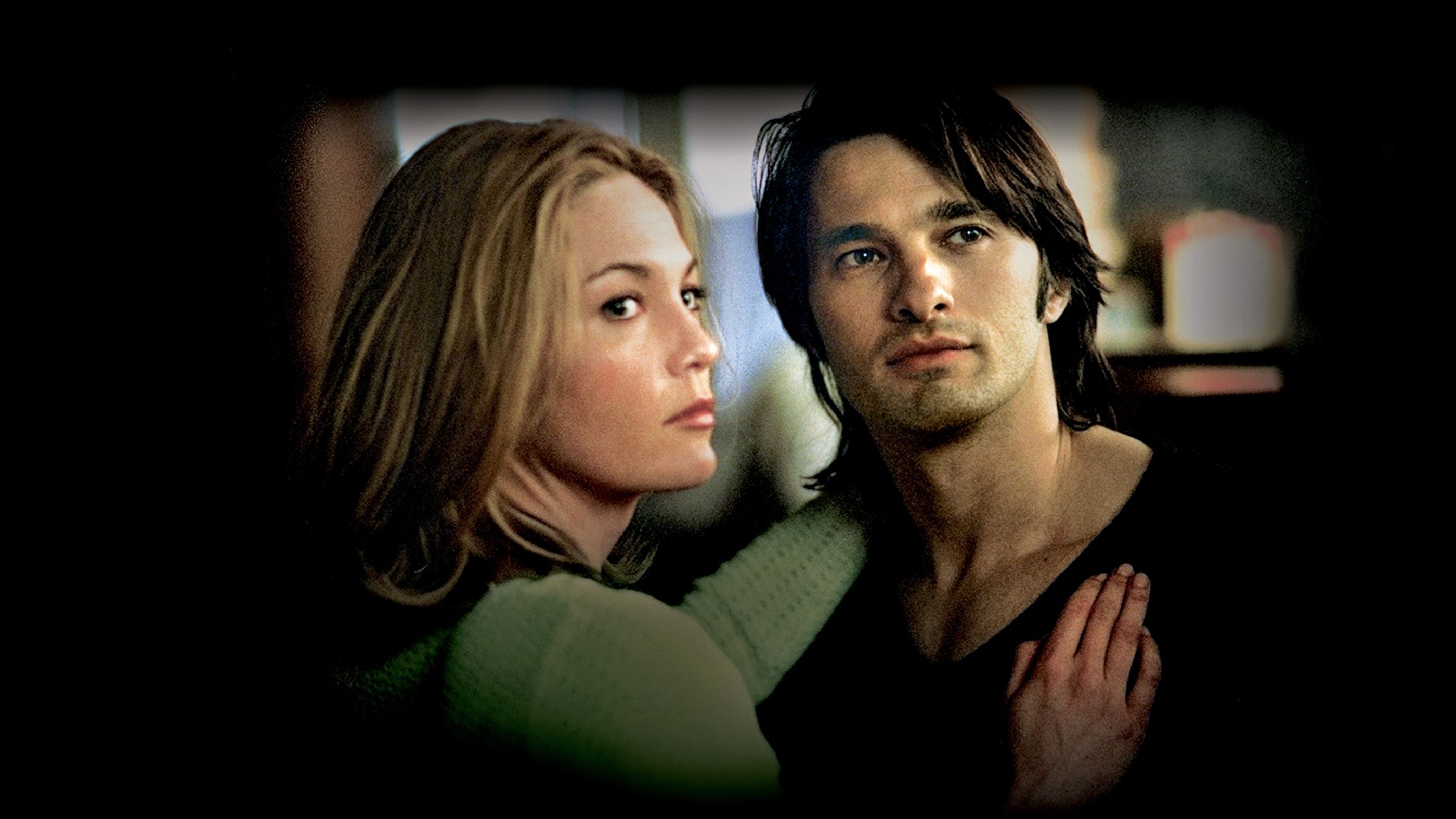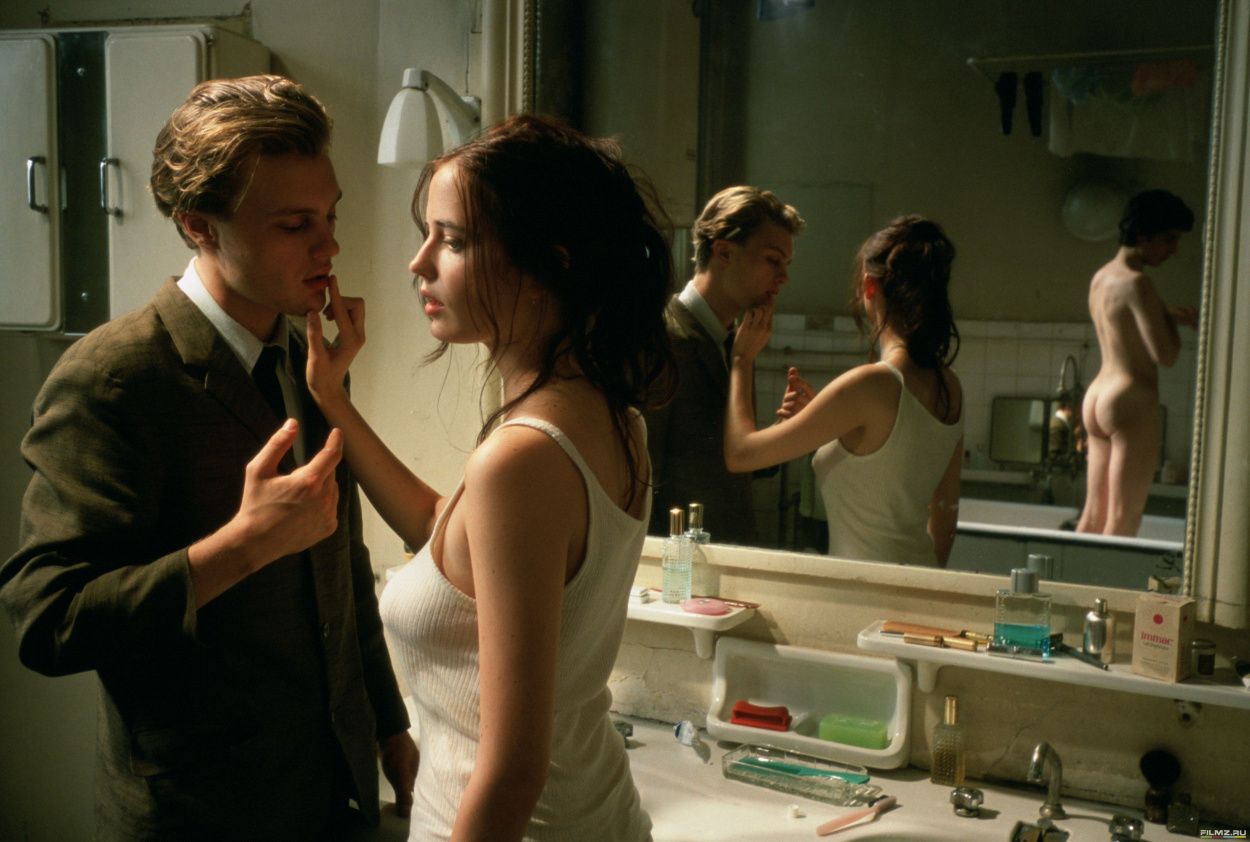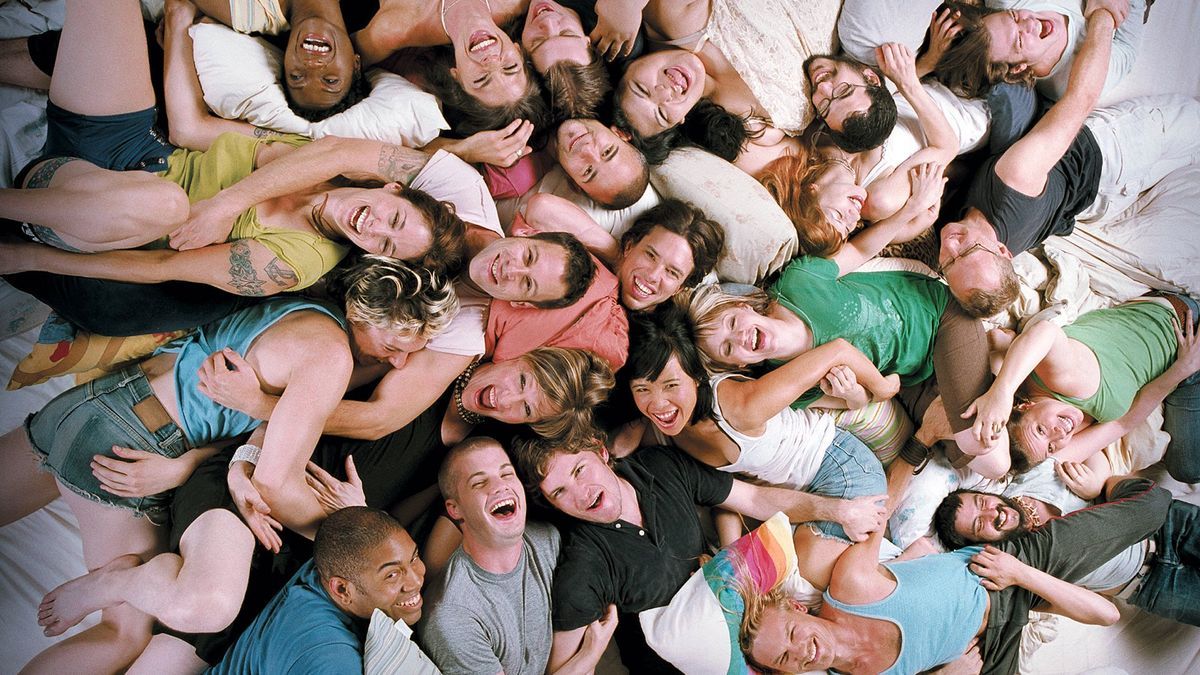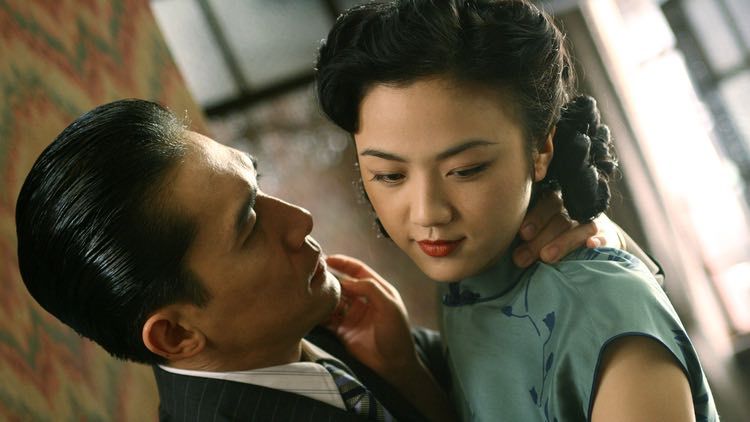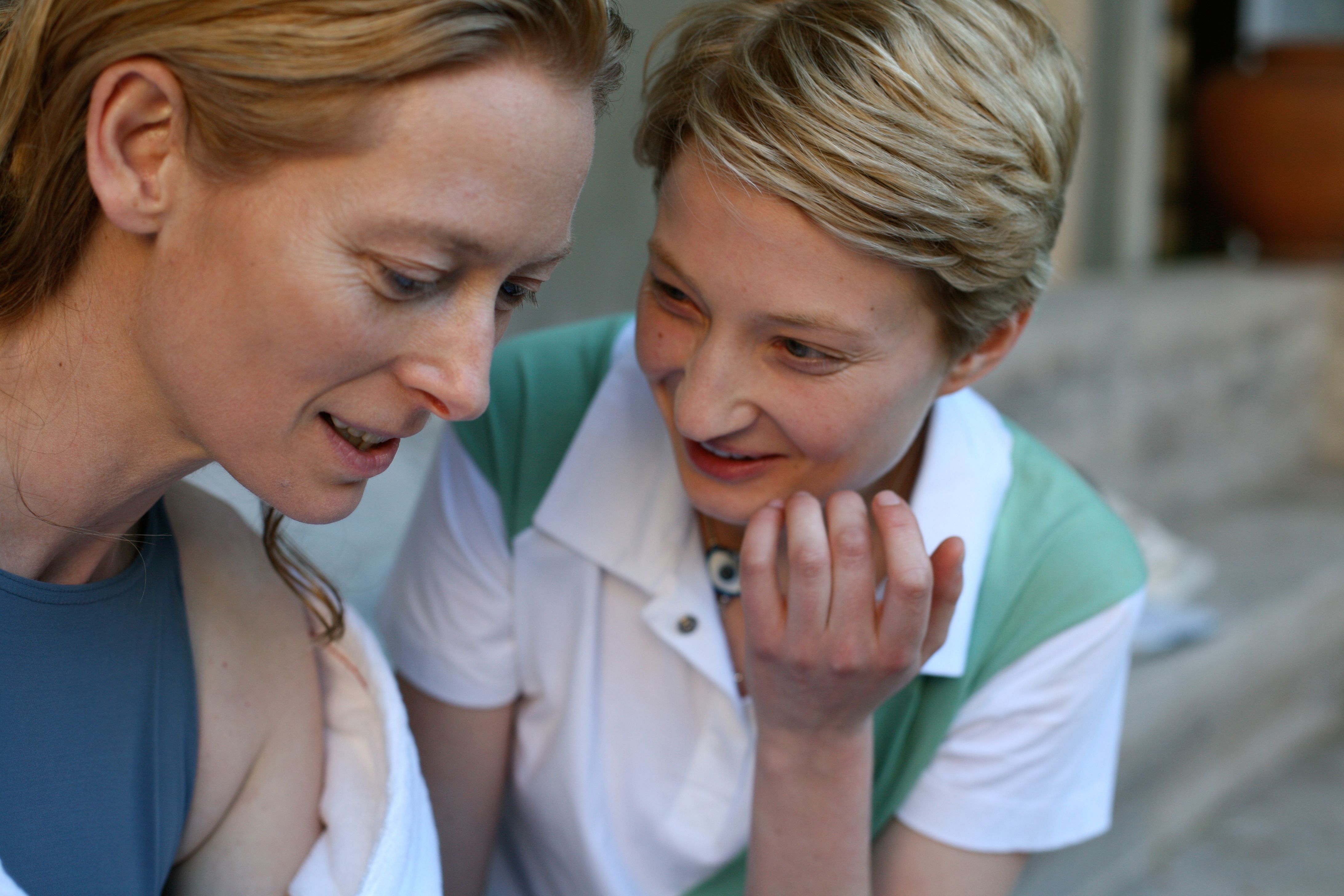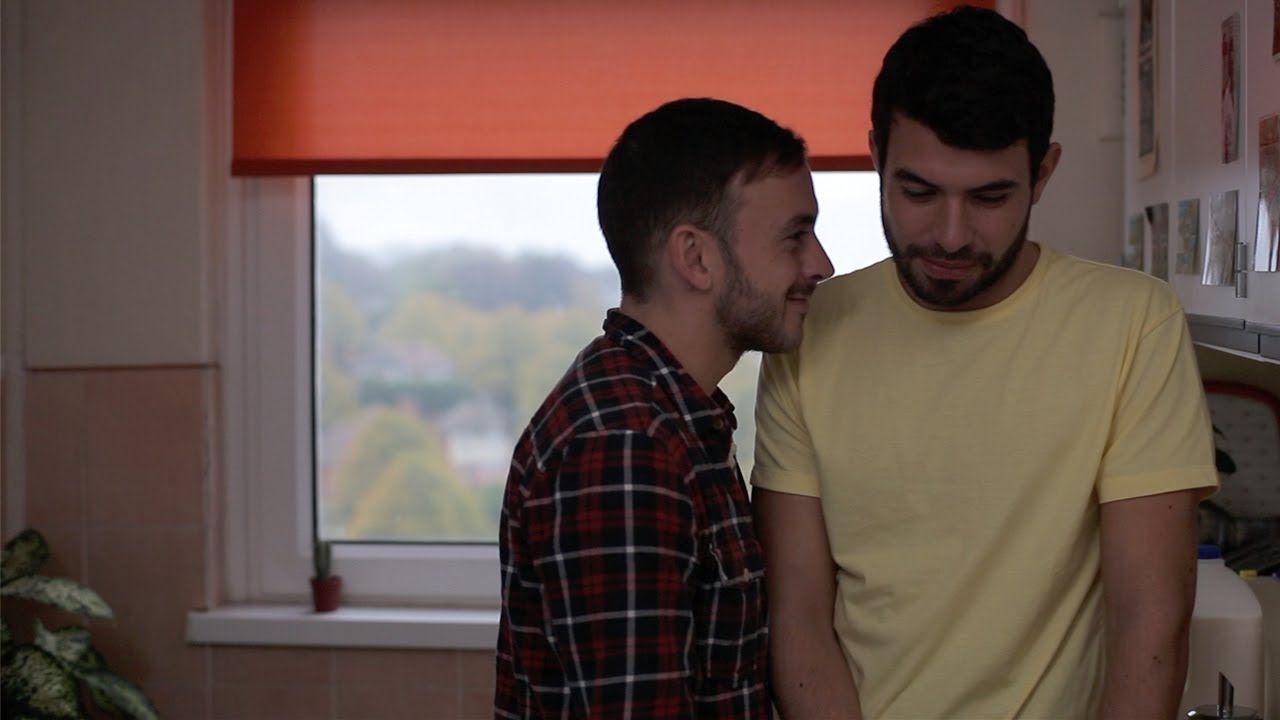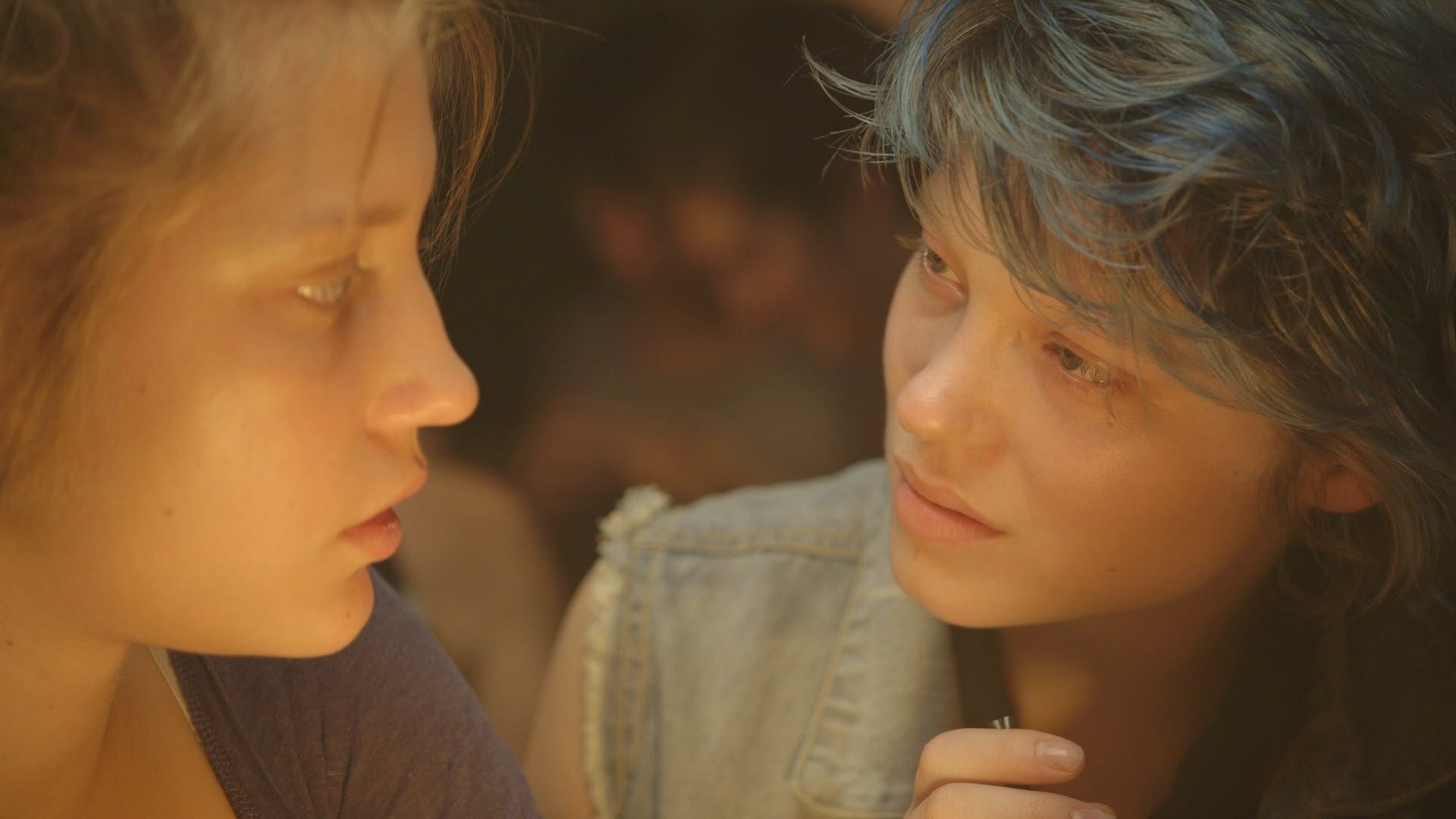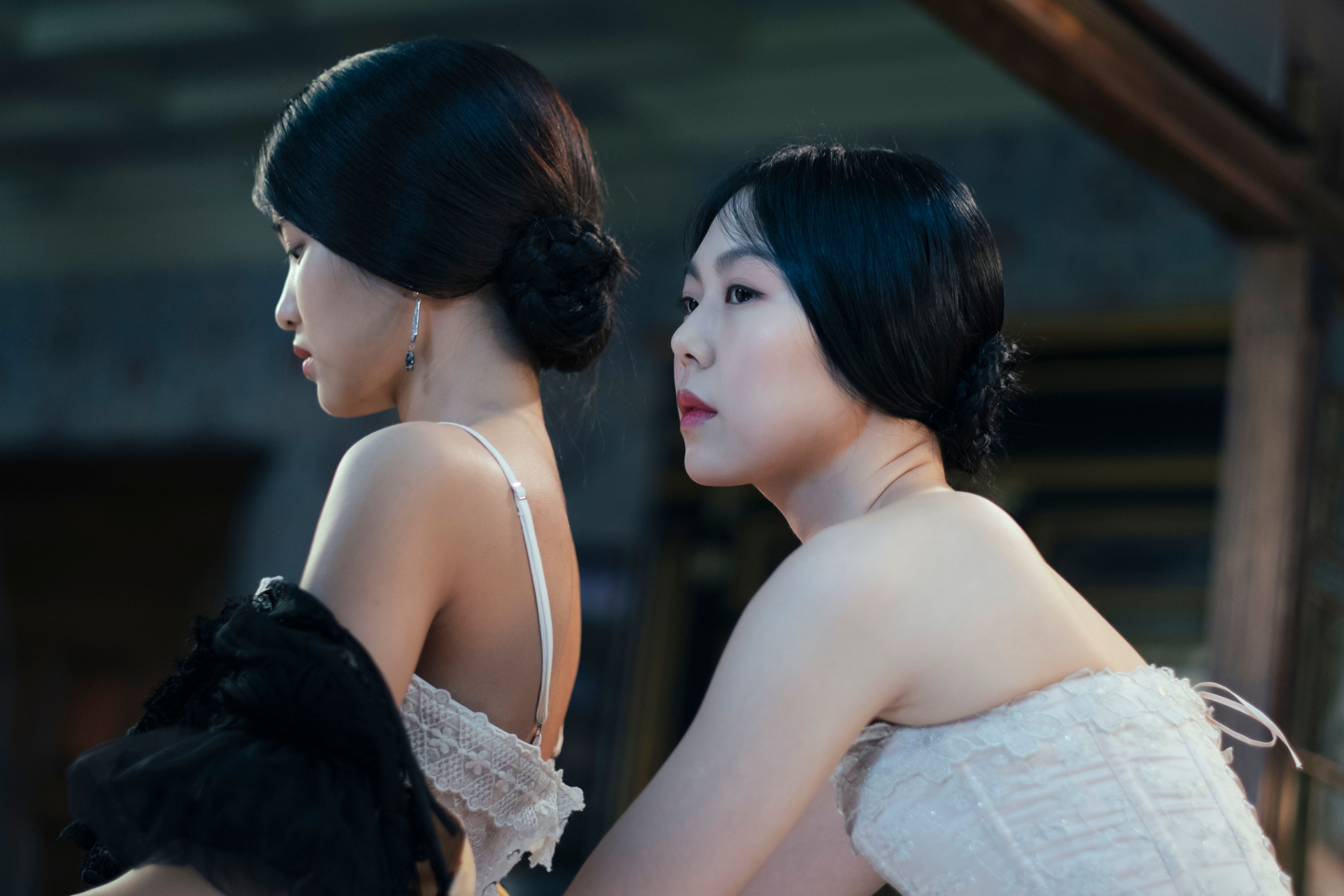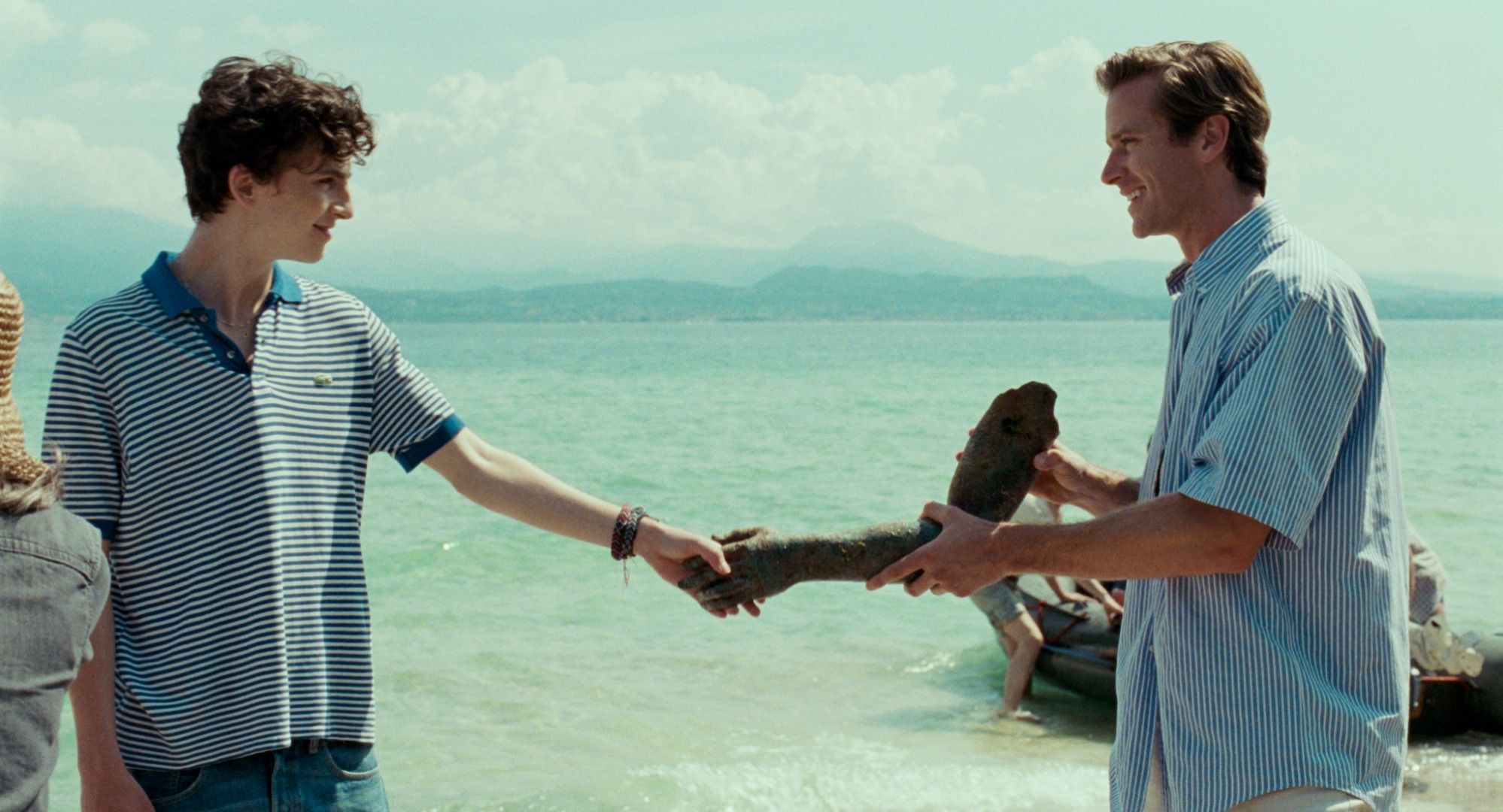It was 1964 when Supreme Court Justice Potter Stewart famously ruled against an obscenity case banning Louis Malle’s The Lovers, offering the ultimate definition of pornography: “I know it when I see it.” Erotica lives up even more vividly to that level of subjectivity, and on film, it tests the outer limits of ambiguity—so much so that we may not even know when we see it. So many stories of sexual awakenings begin with a shared kiss or cuddle; an extended glance between two characters never meant to be together; a hemline or article of clothing a few inches higher, or shorter, than spotted in a viewer’s daily life; and even an emphasized word or phrase hinting at untold, even unintended meaning. And of course, sometimes it’s obvious enough that everybody notices, when an actor or actress bares all, grapples with a scene partner, or simulates intimacy under idyllic, sumptuous lighting.
All of which is to say that selecting the best erotic films feels a bit like decoding a Rorschach test of a writer’s own appetites and interests. Because movies don’t merely document sexual and romantic fantasies, they uncover them. How many moviegoers watched, say, a teen comedy where their first favorite star appeared in a swimsuit, applied lipstick, or showed up at a roller rink looking like the embodiment of attraction? Or found themselves fantasizing about a lick of lips or touch of fingers after a scene where two characters merely brushed each other’s bodies? Erotica is, again, profoundly subjective. As a consequence, this list collects some of the benchmark moments captured on film, ones that touched on topics previously considered taboo, showcased and actor or actress in a role that fulfilled or transformed audience expectations, or simply captured moments of beauty, passion or sexuality in provocative, arousing or transcendent ways. Some are funny. Some maybe a bit frightening. Others seeded with risk, regret, melancholy, or irrepressible humanity. But all of them are more than a little bit hot.
Last Tango in Paris (1972)
Bernardo Bertolucci’s The Conformist failed to make this list only by virtue of its central theme - namely, that individual desire remains suppressed, ignored or overshadowed by political obligation, if not also emotional and physical repression. But two years later, the filmmaker cast one of the most acclaimed actors in the world to depict an opposite scenario - a man so beset by tragedy that he can only escape into sexual depravity. The controversy over the “butter” scene and actress Maria Schneider’s characterization of the experience (of the scripted scene of simulated sex, she said “I felt a little raped”) will, and perhaps should, absolutely color how one sees the performances and film as a whole. But as a filmmaker who repeatedly explored sexuality as (alternately) a façade, and window, into individuals’ emotional lives, it remains an essential and serious work that foregrounded eroticism in mainstream storytelling.
Emmanuelle 2 (1975)
Just Jaeckin’s Emmanuelle and the dozens of namesake copycats and imitators (shedding letters in her name like articles of clothing) created a worldwide legacy of 1970s erotica where moneyed young women traveled the globe, slept with beautiful, anonymous partners and flouted the taboos of so-called “decent” society. But even if the confessional novel upon which this flagship franchise is based wasn’t written by the real Emmanuelle Arsan but her husband, Emmanuelle 2 (subtitled The Joys of a Woman) gave the title character agency and empowerment unlike virtually any of the other installments, including the original film. Francis Jacobetti, a photographer for the French erotica magazine Lui, effectively pioneered the sexy soft-lit look that became synonymous with nudie imagery of the time, and on film, he makes actress Sylvia Kristel look more gorgeous than ever as she slips in and out of bed with men and women, this time taking a protégé in a travelogue for libertines and those lucky, or fearless, enough to satisfy their fantasies, whether in a polo club, bathhouse or during an acupuncture session. This movie is worth watching just for the cinematography and for Pierre Bachelet’s dreamlike music, but every sex scene is absolutely scorching hot.
The Hunger (1983)
Just a year after Paul Schrader rebranded Jacques Tourneur's Cat People as a sexual parable for the post-disco era, Tony Scott made his directorial debut with this sexually-charged story of, well, the most attractive vampire couple in eternity (David Bowie and Catherine Deneuve) trying to facilitate their legacy, and longevity, in a time of science, and affluence. Scott ramps up the style to eleven as he depicts Miriam (Deneuve) finding comfort in the arms of scientist Sarah Roberts (Susan Sarandon) while John (Bowie) seeks a cure for his advancing decrepitude. I’m not entirely sure the movie sticks its landing - evidently producers opted for something more open-ended, if nonsensical, to leave room for a possible sequel - but the sexual energy between Deneuve and Sarandon is positively undeniable, leaving in its wake one of the great promising quandaries in cinema history: if you were enslaved for eternity to one woman, which of the two would you choose?
9 ½ Weeks (1986)
Much of Adrian Lyne’s filmography is comprised of erotically-charged stories, not all as successful as each other but most of them distinctive and thoughtful in their own way. (His adaptation of Lolita, for example, is, in my opinion, a superior adaptation of Nabokov’s book.) 9 ½ Weeks, his follow-up to Flashdance feels almost pedestrian by contemporary standards, but gender roleplay games, having public sex, and using food as an aphrodisiac were all largely novelties, at least within mainstream cinema, when Lyne depicted these acts with Kim Basinger and Mickey Rourke. What’s especially noteworthy is how the movie doesn’t treat these characters’ sexual chemistry and the relative health of their relationship as synonymous; in the end, it doesn’t argue that their sometimes overlapping dysfunction is a sign of emotional commitment or deeper love, but a temporary conveyance and amplification of desire that is rich and satisfying, even if only in the short term.
Basic Instinct (1992)
Before Paul Verhoeven broke into Hollywood with Robocop, he pushed sexual taboos in his native Netherlands with Turkish Delight, Spetters and The Fourth Man. Basic Instinct felt like an act of provocation, testing the limits of an audience’s embrace of melodrama and even camp (further pushed, to almost parodic effect, with Showgirls), as Michael Douglas’ homicide detective Nick Curran gets drawn into a sexual relationship with Sharon Stone’s uninhibited novelist and murder suspect Catherine Tramell. Critics were right to point out the way that Joe Eszterhas’ screenplay reiterated portrayals of gay and bisexual characters as dangerous or mentally unstable, but what remains unique, appealing and even empowering is the way in which Stone’s Tramell unapologetically indulges her own sexuality, objectifies her male partner, and exerts control both in and out of the bedroom.
The Lover (1992)
Adapting Marguerite Duras’ semi-autobiographical novel, Jean-Jaques Annaud depicts a relationship between a teenage girl and a wealthy Chinese man that unfolds, and evolves, as the two wrestle with their desires, and reckon with their station, and obligations. As the Young Girl (her only name in the film), Jane March brings not only nubile sexuality to their relationship but an astute control to their encounters, even as the character fights to resist the deeper feelings she begins to develop for the handsome older man she visits each day after school. As “The Chinaman,” Tony Leung Ka-fai is as beautiful and lithe as March, offering an appealing portrait of male sexuality (and sensuality) that was seldom depicted on screen. March’s unfettered sexuality earned her a lead role opposite Bruce Willis in director Richard Rush’s erotic thriller Color of Night, but it was because of her luminous humanity in this bittersweet love story, not simply taking her clothes off, that she captivated audiences.
The Piano (1993)
Jane Campion wrote and directed this extraordinary film about a mute Scotswoman named Ada (Holly Hunter) sold into marriage with a New Zealand frontiersman (Sam Neill) only to fall for a forester named Baines (Harvey Keitel) hired to provide day labor. What begins as a story of servitude for this woman becomes a journey of empowerment as Baines bargains with Ada, first for her piano, and later, for physical affection that grows into a deeper and more profound love. Hunter gives Ada a desperate authority that grows more dignified as she begins to recognize her own autonomy, and eventually, control of these two men confounded and intimidated by her. Set in a time and place where gender roles were rigidly enforced, Campion creates an erotic feminist masterpiece that manages to be sexy and substantive at the same time.
Crash (1996)
The only enduring shortcoming of David Cronenberg’s adaptation of this J.G. Ballard novel is that it shares a title in common with a Best Picture Oscar winner that unfortunately earned more attention with much less to say about people. Cronenberg’s extraordinary skill with Ballard’s work is not necessarily making the characters’ fetish for death, and in particular, sex connected to car crashes, one that we will or even should share. Rather, it’s that he communicates why it motivates and manipulates them, and encourages the audience to look inward at the idiosyncratic appetites that drive them. The fact that it also features an incredibly attractive cast, including James Spader, Deborah Kara Unger, and Holly Hunter, in various stages of undress only solidifies the parallel lines of shapeliness and beauty between a glossy vehicle chassis and the human bodies seeking satisfaction in, on and around them.
Sex and Lucia (2001)
Writer-director Julio Medem created this story about past and present, sex and love, clarity, and confusion between Lucia (Paz Vega), her boyfriend Lorenzo (Tristan Ulloa), and the events - many sexual or sex-related - that define their relationship. Vega’s Lucia takes charge in their relationship but there’s real reciprocity as they give each other pleasure, discovering each other’s bodies as a matter of muscle memory (no pun intended) and creating moments pivotal to their emotional lives as well. As it explores their sexual, emotional and creative lives, Medem’s film showcases the many unexpected and yet inextricable connections between sex and experiences that occur outside of intimacy, fueling growth and change.
Y Tu Mama Tambien (2001)
Before he became an Oscar-winning trailblazer, Alfonso Cuaron directed and co-wrote this intimate drama about two teenage best friends (Diego Luna and Gael Garcia Bernal) who embark on a revelatory journey of self-discovery with an older Spanish woman (Maribel Verdu) during the summer before college. Stuffed with lots of sex, and sex talk, the premise suggests a Penthouse forum entry come to life, or a chronicle of teen hijinks. But instead, Cuaron looks deeply into the young boys lives - their social status, cultural clashes, entitlements, and anxieties - as they’re revealed by the opportunities that unfold in front of them with this older woman who initially seems restrained but proves to be more honest and mature than either of them, in a way that proves raunchy, tender and enlightening - for them and for audiences.
Secretary (2002)
Mary Gaitskill’s writing is filled with sexual encounters that juggle the profane and intimate, tough and tender, complex and clear-eyed. Steven Shainberg’s adaptation of her book about the BDSM relationship between a lawyer (James Spader) and his secretary (Maggie Gyllenhaal) encapsulates all of those impulses, as it argues that relationships with intense and emphatic power dynamics can be as healthy and loving as traditional or conventional ones. Shainberg, like Cronenberg with automobiles in Crash, pinpoints what first exhilarates Gyllenhaal’s Lee in this relationship, but later examines what it repairs within a person who commits self-harm - a safe and protective exercise of control. At the same time, it highlights the idea that “normal” between two consenting adults can be wildly different as it is functional, nurturing - while also offering a little kinkiness to keep things unpredictable.
Unfaithful (2002)
If Adrian Lyne indulged in melodrama, even establishing a visual language for imitators to follow in portraying “erotic” acts on screen, he razed his own visual language (and many of the moral and emotional lynchpins of his earlier films) with this drama about a woman who begins an extramarital affair that transforms her previously happy relationship with her husband. What the movie touches on about affairs that many others don’t is the fact that Connie (Diane Lane) and Edward (Richard Gere) don’t have problems before she gives in to the charms of Paul (Olivier Martinez) - that curiosity, and novelty, can be as powerful attractors as unaddressed or deep-rooted problems. Lane earned Golden Globe and Academy Award nominations for her performance, which required the actress to perform erotic scenes with Martinez, but more crucially, to depict the uncomfortable, intoxicating mix of reactions Connie endures after betraying her husband - fear, excitement, satisfaction - even as her liaison causes chaos, and eventually more of Lyne’s old-fashioned melodrama, as she attempts to extricate herself.
The Dreamers (2003)
Decades after The Last Tango In Paris, Bernardo Bertolucci adapted “the spirit, but not the letter” of Gilbert Adair’s novel about three young students who embark on a sexual and personal odyssey in Paris 1968. Starring Michael Pitt, Louis Garrel and then-newcomer Eva Green, Adair’s novel balances the trio’s erotic indiscretions with their evolving artistic influences and burgeoning political convictions as Bertolucci creates an almost prototypical portrait of young adulthood - that is, if three stunningly gorgeous people with more resources than inhibitions chose to push the limits of their wisdom and experience. Astutely capturing the impulses and emotional attachments that undermine pure libido, The Dreamers reiterates the truth that youth is often wasted on the young, even as it points out how fun and arousing it can be for viewers to watch that discovery unfold.
Shortbus (2006)
Five years after Hedwig and the Angry Inch, John Cameron Mitchell returned with this pansexual ensemble odyssey he created to “employ sex in new cinematic ways because it's too interesting to leave to porn.” Unlike so many other entries in this list, Mitchell acknowledges the complex emotions of sex, but always remembers the fun, and utilizes his encounters to reveal information about his characters, rather than the other way around. The fact that the characters are confused and horny at the same time becomes a big plus as they take risks and explore elements of their sexuality audiences actually get to see on screen - if fictional, then at least explicitly honest. And its broad range of different sexual acts, from autofellatio to domination to group sex, offer an unparalleled variety of choices and lifestyles for audiences to explore and discover.
Lust, Caution (2007)
Ang Lee had already wrestled with sexual longing masking deeper emotional honesty and identity in 2004 with Brokeback Mountain when he decided to make this NC-17 film about a college student named Chia Chi (Tang Wei) during the Second Sino-Japanese War who agrees to seduce Mr. Yee (Tony Leung Chiu-Wai), a special agent whose assassination will benefit the Chinese. Where in Brokeback the characters resisted, and succumbed fearfully to the feelings they refused to acknowledge, Chia Chi’s ruse become the ultimate performance for a woman who wants to be an actress - in this case, a lover who can satisfy his sexual and emotional needs. The film’s complicated political maneuvering dovetails into the characters’ sexual ones, and Lee stages the sex scenes with a fascinating theatricality that underscores the way these individuals are playing roles, fulfilling responsibilities, and struggling to maintain their own identities as the closeness of sex challenges their objectivity.
I Am Love (2010)
Tilda Swinton’s own romantic life, which reportedly includes a longtime partner as well as a lover stationed in a cabin just outside the grounds of her home, feels like it could make its own erotic drama. Certainly, her filmography is filled with projects where she explores gender and sexuality in unique, powerful ways. Luca Guadagnino’s I Am Love in many ways feels as much like a love letter to Italy as to Swinton, but as the maternal figurehead of a powerful family, she conveys the overpowering complexity of a woman stricken by desire for a much younger man in spite of her marriage, and her larger commitments to family and legacy, in a way that’s both tantalizing and tragic. Guadagnino treats her quandary with the same kind of tenderness - and sexiness - that he employs later in Call Me By Your Name - as he not only depicts her succumbing to this desire in the moment but reveals the full spectrum of its meaning as she reclaims her own identity and her future in its explosive wake.
Weekend (2011)
Written and directed by Andrew Haigh, Weekend captures not just the thrill of a short-term tryst, but the intimacy that can develop between two people even when they may not be seeking it. When Russell and Glen hook up after meeting at a gay club, the two men settle into an unpredictable, revealing rhythm of physical and emotional interaction as their intentions, beliefs, and values are tested by the closeness they feel. As is to be expected by the eventual showrunner of Looking, Haigh tackles a number of complicated sociological topics amidst their navigation of one another and what they intend to be a limited time together. But the fact that the movie doesn’t skimp either on the sex or the meaning that evolves out of a connection each initially holds at arm’s length only underscores the completeness and meaning that can come from a sexual encounter.
Blue is the Warmest Color (2014)
With director Abdellatif Kechiche at the helm, legitimate questions linger over how much of this opus truly explores a lesbian relationship from a female perspective and how much it indulges the male gaze (as well as where to draw the line between nurturing authentic performances and treating cast and crew poorly). But after the Cannes Film Festival awarded its top honors not just to Kechiche but actresses Lea Seydoux and Adele Exarchopoulous, the film’s legacy solidly honors their work as much or more than his as two young women fall into a relationship that transforms each other and shepherds them through important discoveries in their lives. The intimate scenes exude raw sexuality, but also undeniable intimacy, as what occurs between the two of them is not just physical attraction but the deeply evocative rhythms of love, ebbing and flowing, with the idiosyncrasies of individuals exploring and learning about each other, and themselves.
The Handmaiden (2016)
Park Chan-wook already made Thirst, Stoker and the extremely f*cked-up Oldboy before he tackled the bona fide erotic thriller The Handmaiden to elevate and concentrate the impulses he flirted with, and complicated, in those other films. In this rollercoaster of sexual obsession, manipulation and betrayal, Lady/ Izumi Hideko (Kim Min-hee) succumbs to the advances of her maid Nam Sook-hee (Kim Tae-ri), and the two must circumnavigate the controlling influence of the man who they believe are dictating their fates. Park-chan Wook similarly manipulates the audience giving them sequences of attraction and consummation between the women - rhythms of sordid melodrama - that he later unveils to be more substantial discoveries not just of desire, but genuine affection. Like the best erotic stories, The Handmaiden captures both the irresistible urges and energies shared between partners as well as the connections that allow relationships to endure, and thrive, in between sexual encounters.
Call Me By Your Name (2018)
Coming of age stories offer familiar, even timeless opportunities for different sorts of personal discovery - as well as entryways for filmmakers to explore them on film. Luca Guadagnino’s adaptation of Andre Aciman’s novel of the same name (written by James Ivory, exceptionally skilled at capturing longing) dives as deeply into the emotional ramifications of a young teenager’s sexual discovery as the physical ones, communicating both the heat of Elio’s (Timothee Chalamet) fling with Oliver (Armie Hammer) and the substance that bonds them before and afterward. The movie’s love of these two beautiful and different bodies enables their sexual encounters to be revelatory, hot, and tender all at once, leaving audiences as overpowered, devastated and grateful as Elio after their time together is over.

